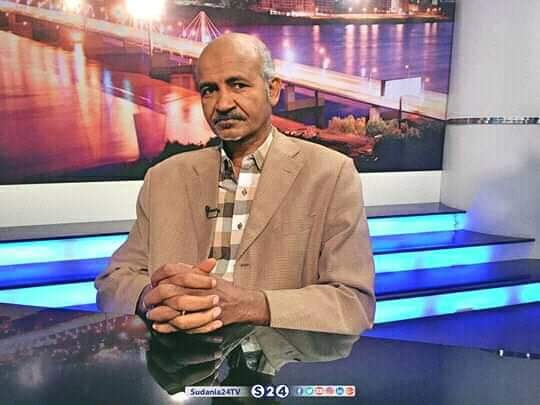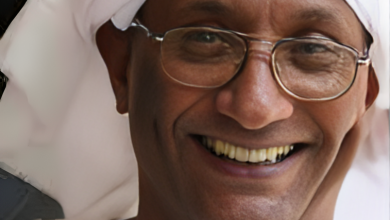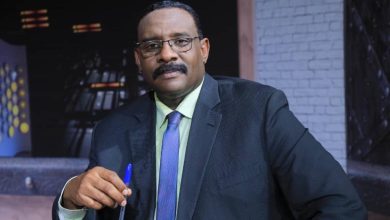What is Behind the Declaration of (the Popular Armed Resistance) in the Sudan?

By Al Nour Ahmed Al Nour
Khartoum
The wide spreading of the Rapid Support Forces (RSF) in the Gezira State, central Sudan, following its control of the capital Wad Madani, a week ago, and the accusations that the RSF committed wide violations, including looting, pillaging , killing and abuse, these practices have spurred wide groups of population to organize themselves in the Armed Popular Resistance in order to defend themselves and their properties, notwithstanding warnings that this might lead the country to chaos and involve the homeland in a civil war.
Campaigns to mobilize, train, and arm citizens were organized in the states of Gezira, White Nile, Sinnar, Gadarif, River Nile, Northern, Kasala, and Red Sea, under the name of “Armed Popular Resistance.”
Some state governors and military leaders in areas under the Army’s military control addressed mass meetings organized by popular and tribal leaders, urging citizens to take up arms to defend themselves
The Rifa’a, Shukriya, Kawahla, Ja’alin, Beja, and Rashaida tribes also issued separate statements in which they called on the RSF to “refrain” from “killing citizens and looting their property,” and called on their subjects to take up arms to defend themselves and their land and confront the “aggressors.”
Looting and abuse
The Governor of the Nile River State, Muhammad al-Badawi, told thousands of citizens of the city of Shendi last Sunday that they would train young people to carry weapons, and the Artillery Commander, Major General Muhammad al-Amin, pledged that he would open weapons stores to distribute them to volunteers.
In a meeting in the coastal town of Suakin, the Governor of the Red Sea State, Mustafa Mohamed Nour, announced the inauguration of the “Armed Popular Resistance” on Monday, and stressed the readiness of the citizens of his state to defend their region.
For his part, the leader of the Beja tribes in eastern Sudan, Muhammad Al-Amin Turk, said in front of thousands of tribesmen that the time for negotiations with the Rapid Support has ended, and that they are ready to take up arms to defeat “the rebellion, and the east will be their graveyard if they try to attack it,” as he put it.
Social media sites, where some young people are active in areas that were “overrun” by the Rapid Support Forces, reflected accounts of “widespread violations in dozens of villages in the state of Al-Gezira, the looting of citizens’ property, including cars, gold, and money, and the killing of those who defended their property and their families.” These sites also talked about “Children were kidnapped, and a ransom was demanded in exchange for their release.”
For his part, Othman Abdullah from the Umm Dakarsi region told Al Gezira Net that these forces “abused young men and children, and flogged them in front of their parents to force them to hand over the keys of their cars, their women’s jewelry, and their money, which led to the citizens of the region carrying firearms and white weapons, and they were able to kill 7 of the elements.” Rapid Support, which in turn killed 5 of them.”
Ismail Al-Taher from the “Arbaji” area also stated that the forces stormed it last Sunday, “plundered their cars and homes, and shot some citizens, and that they called for help from its commander, Abu Aqla Kikal, in Wad Madani, who came to them and apologized for the practices of his forces and pledged to hold them accountable.”
Al-Taher added – in an interview with Al Jazeera Net – that dozens of members of the Rapid Support Forces returned on Monday and “carried out retaliatory operations, arrested citizens, tortured others, and interrogated them because a complaint had been filed with Kikal against them, and the gunmen looted other belongings and cars.”
Confession and Warning
For his part, the head of the Rapid Support Department of Thought and Culture, Hafez al-Zein, who is located in Wad Madani, said that the second commander of these forces, Abdel Rahim Dagalo, ordered the imposition of severe penalties on the unruly members of his forces who attack citizens and their rights.
He explained that the “Committee for Combating Negative Phenomena” in the Rapid Support allocated 100 combat vehicles to pursue these people, and recovered from them 10 trucks and 100 cars that were looted from the “Fadassi” area and handed them over to their owners. 100 of their members who attacked citizens and looted their property were arrested, and 400 of them were arrested.
Regarding the “Armed Popular Resistance”, the Rapid Support Forces – in a statement last Sunday – condemned what it described as “arming civilians” by Sudanese Army Intelligence.
It added that supporters of deposed President Omar al-Bashir in the National Congress Party are seeking to arm civilians “with the aim of dismantling the country and dividing it again. Our forces will not allow this plan to be implemented.”
In this context, the Sudanese Congress Party, which is active in the “Forces of Freedom and Change Alliance,” condemned what it described as “grave violations committed by the Rapid Support Forces against civilians in Al-Gezira State,” holding them fully responsible, and demanding that they immediately stop these practices.
The party stressed its categorical rejection of pushing citizens to engage in war through increased military mobilization.
It believed that this would contribute to prolonging the conflict, lead to the possibility of it turning into a civil war, and open the door to comprehensive chaos and the danger of division.
The President of the Sovereign Council, Abdel Fattah Al-Burhan, implicitly accused the “Forces of Freedom and Change Alliance” of being “a political arm of the Rapid Support Forces.”
Legitimate concerns
For his part, political researcher Montaser Abdullah believes that the popular resistance began since the first months of the war last June in West Darfur state, when hundreds of young men from the “Masalit” tribe took up arms after accusing the Rapid Support Forces and a militia allied with them of killing thousands of people from their tribe in “crimes” that human rights organizations considered “genocide.”
Speaking to Al Jazeera Net, the researcher explains that the Hamar tribe in West Kordufan state armed 5,000 of its youth last July, and prevented the support forces from attacking the city of Al-Nahud, the stronghold of the tribe, and their other villages and areas.
Abdullah attributes the reason why citizens carry weapons to their conviction that their armed forces, after 8 months of war, “are unable to achieve a decisive victory over rapid support, and were unable to protect them from violations, killing, and the plundering of their money and property.”
Abdullah warns that the spread of weapons without controls will have serious repercussions in the future, and he called on the army to use volunteers and reserve soldiers because they are more trained and qualified to use weapons, and it can be collected from them after the war stops.
He asserts that “in light of polarization and the spread of hate speech, carrying weapons without strict controls could push the country into civil war.”
Last June, Al-Burhan announced general mobilization and alert, and called on young people who are able to carry weapons to go to the nearest military unit. The number of citizens who trained in the states during the past months was estimated at more than 400,000, but the number of those who participated in fighting alongside the army is limited.
Source: Al Jazeera



